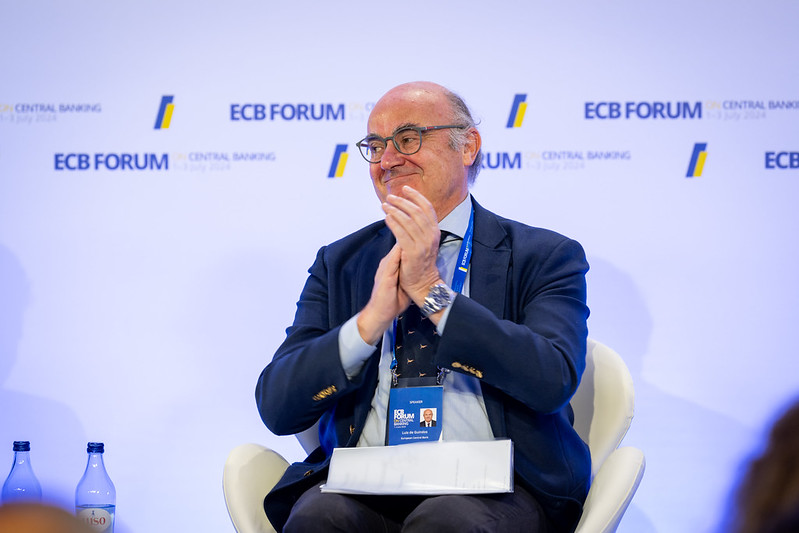ECB’s de Guindos: Indirect Inflation from Tariffs Could Become More Permanent
26 November 2024

By Marta Vilar – MADRID (Econostream) – European Central Bank Vice President Luis de Guindos said on Tuesday that the indirect effect on inflation of potential tariff hikes could become more permanent.
In an interview with the Finnish daily Helsingin Sanomat, de Guindos said that potential tariffs would have a first-order impact on economic activity, but that there was a possibility that inflation would be indirectly affected.
‘Afterwards, if this initial impact on inflation were accommodated by fiscal and monetary policy, it could become much more structural’, he said. ‘So growth would be affected the most, and additional monetary and fiscal impulses could make the effect on inflation more permanent.’
If these tariff hikes were to provoke retaliation, this could lead to a trade war, de Guindos said.
‘It would be a lose-lose situation for everyone’, he said.
De Guindos stated he was ‘confident’ that inflation would return to the 2% target in the course of 2025, but warned that an increase in headline inflation was expected in the last part of 2024.
‘So if services inflation starts to decelerate, we believe that headline inflation will converge steadily towards target’, he said. ‘Simultaneously, core inflation, which is now slightly above 2%, will also converge towards our target.’
Were the ECB macroeconomic projections to be confirmed, the central bank would continue to lower rates, he said.
Asked if the terminal rate would be in the range of 1.75-2%, de Guindos replied that ‘it will depend on the evolution of inflation’.
It was hard to anticipate the pace and the scale of upcoming rate cuts, he said, which was the reason why the meeting-by-meeting data-dependent approach was crucial.
‘But it is clear that we will keep making our monetary policy stance less restrictive, because inflation is getting closer to our target’, he added.
Related articles:
